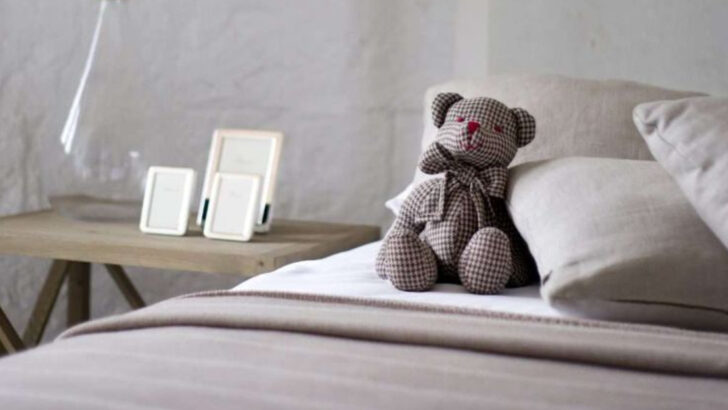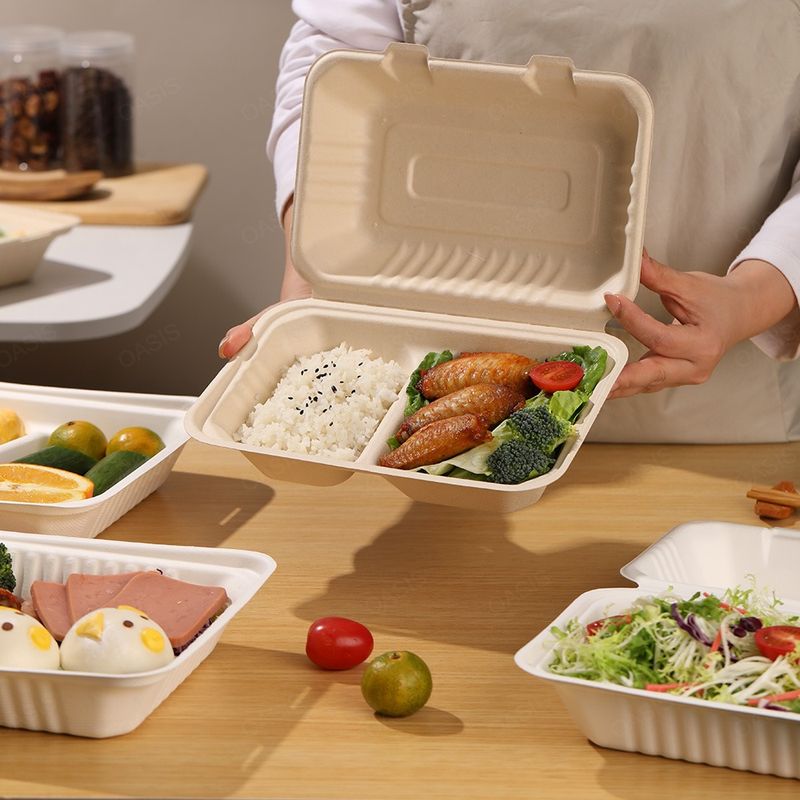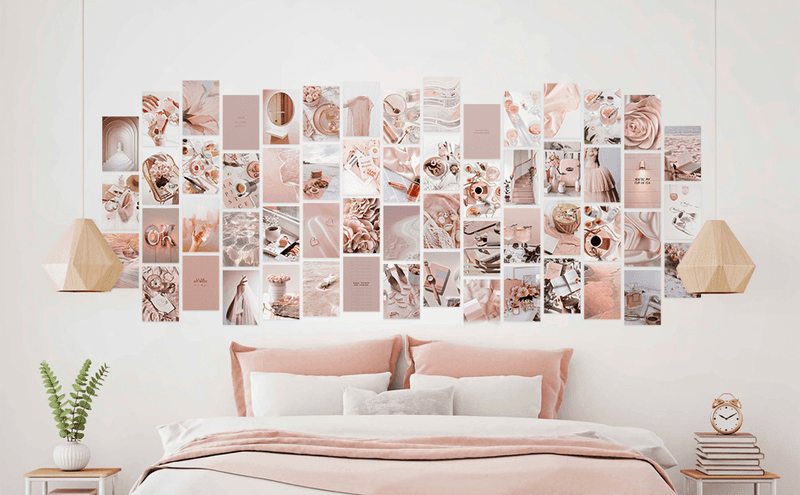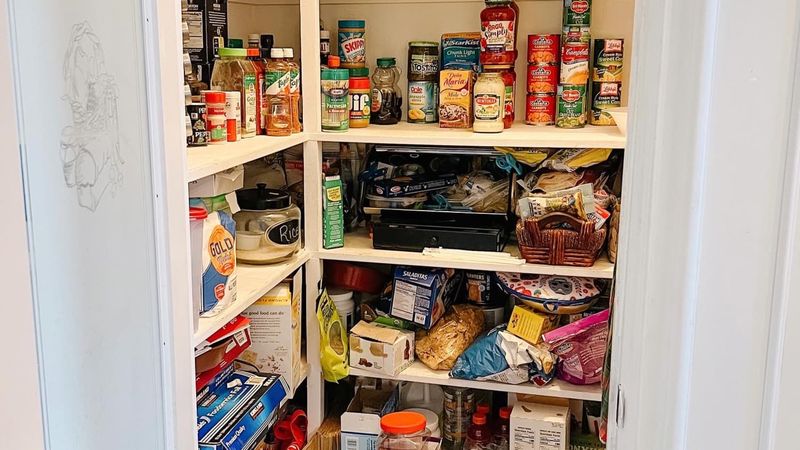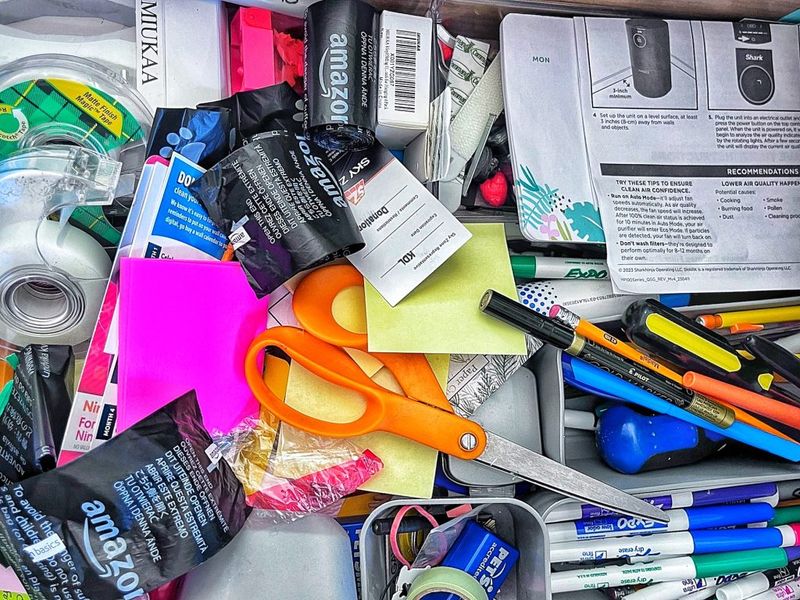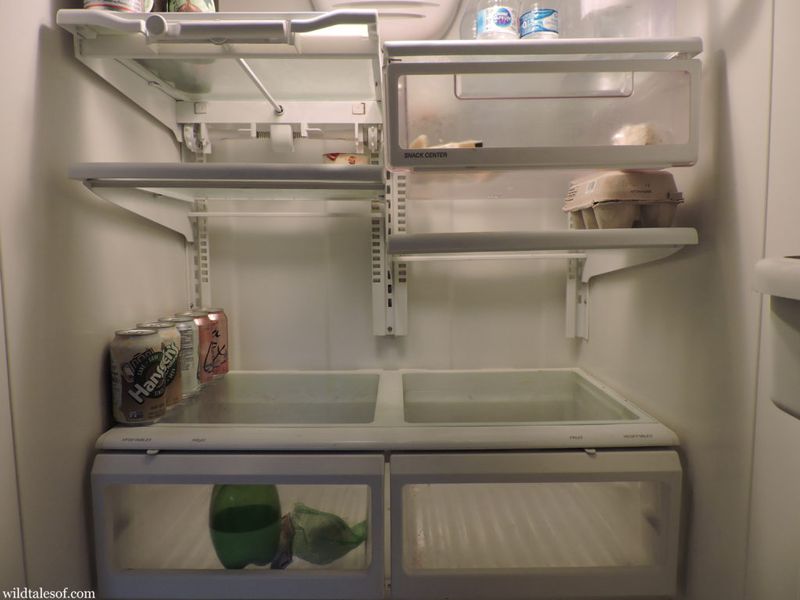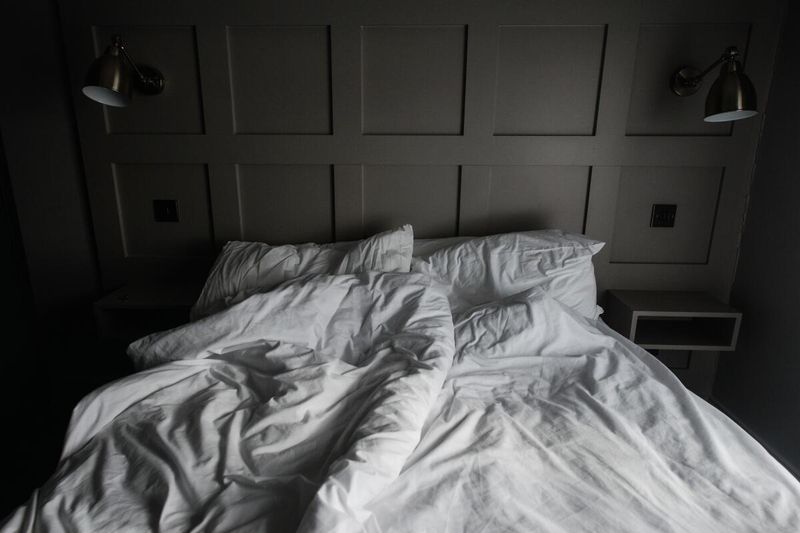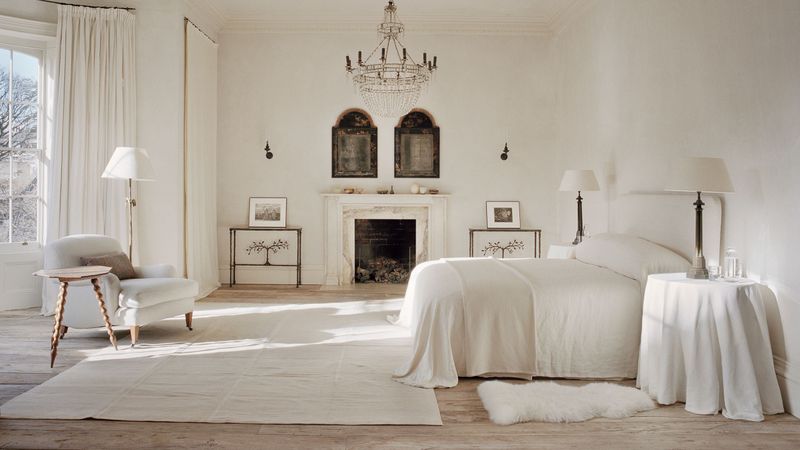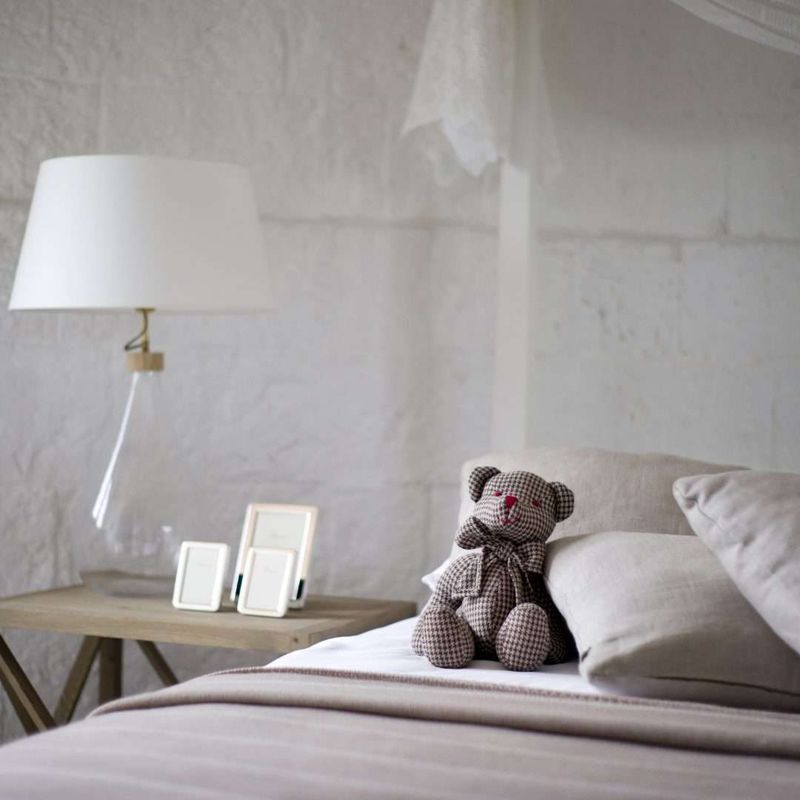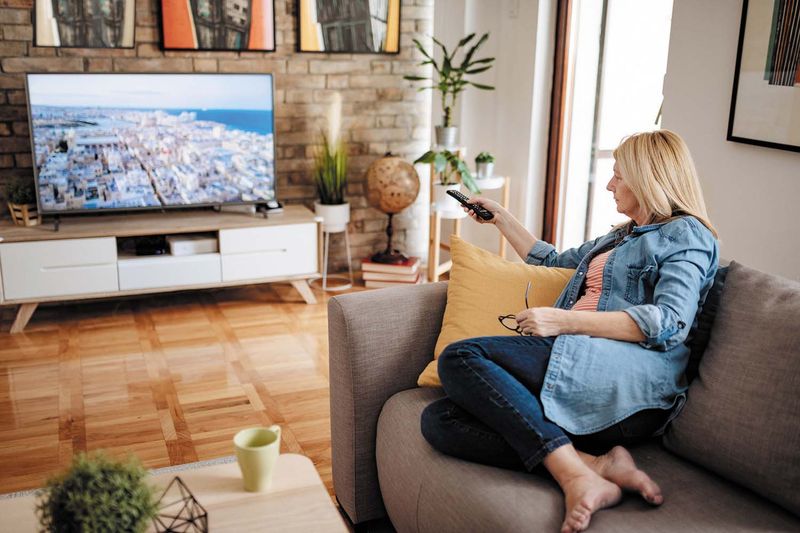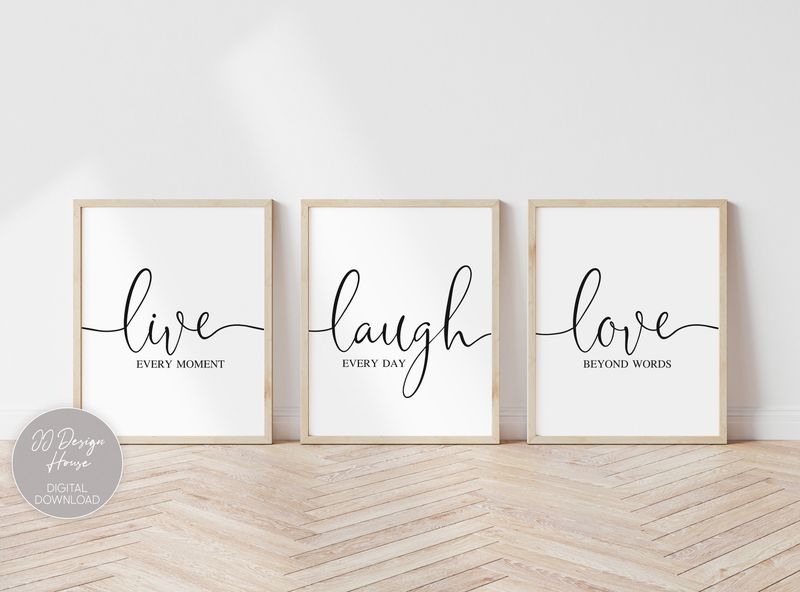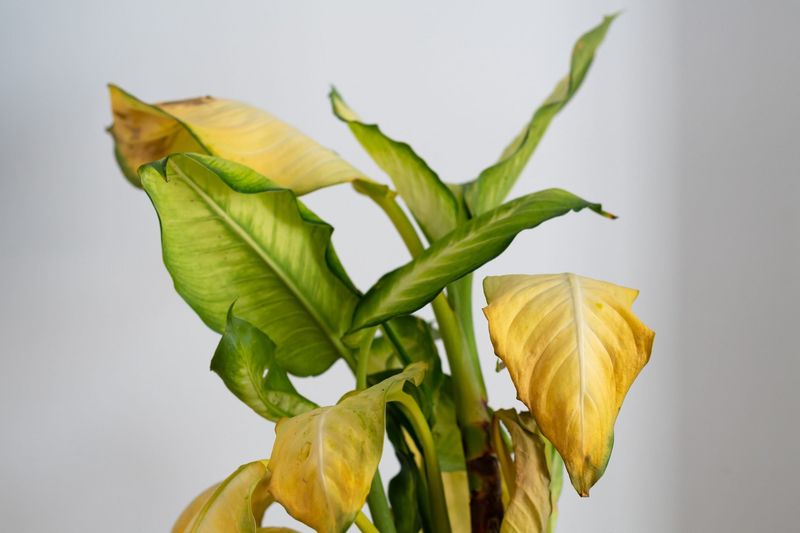If you’ve ever wandered into someone’s home and silently clocked a few things that made you think, “Ah, so we’re still doing that,” you’re not alone.
The stuff we surround ourselves with says a lot, and sometimes, the real story isn’t in the decor—it’s in what lingers, what’s left undone, or what’s quietly collecting dust on the shelf.
Emotional maturity? It has a way of sneaking into our living spaces, or not, depending on how much we’ve grown out of old patterns. Here’s to the cringe, the nostalgia, and the tiny victories of leaving behind what just doesn’t fit anymore.
Grab your favorite drink, put your feet up, and see if you spot your past self (or, hey, your present one—no shade) in this very honest list. Growth is messy, hilarious, and overdue—just like some of these home habits.
1. The Never-Ending Pile of Laundry
It’s the Everest of adulthood: that looming mound of laundry you swear you’ll tackle after just one more episode (or, let’s be honest, tomorrow’s tomorrow). The pile reflects more than just a busy week—it’s the physical manifestation of procrastination doing jumping jacks in your hallway.
There’s a strange comfort in the chaos, as if having clean and dirty socks mingle means you’re still young at heart (or just allergic to folding). Emotional maturity isn’t about perfect closets; it’s about not letting your laundry double as interior design.
But hey, we’ve all been there. The real flex? Learning that adulting doesn’t mean spotless, but it does mean finally washing that shirt before it’s needed for a job interview. It’s progress, not perfection.
2. The Tower of Takeout Containers
Let’s call it what it is—the Leaning Tower of Pizza Boxes. Sure, supporting local restaurants is noble, but when the recycling bin is overflowing with old containers, it’s less about cuisine and more about delayed self-care.
The comfort of never having to decide what’s for dinner is intoxicating, but it comes at the price of dodging your own well-being. Home-cooked meals don’t just feed your body; they show you’re investing in yourself (even if it’s just microwaved leftovers).
No judgment if your fridge is just a monument to last night’s pad thai. But the glow-up happens when you realize you’re worth more than another round of plastic utensils and fortune cookies.
3. Posters Taped Directly to the Wall
Remember when a wrinkled poster was all you needed to claim a space as yours? Taping them straight to the wall feels rebellious—until you realize you can buy frames that say, “I’m here, and so is my taste.”
There’s nostalgia in those dog-eared corners, sure, but they also whisper, “I haven’t fully committed to this adulting thing.” Emotional maturity sometimes looks like investing in a frame—or, at the very least, not using duct tape as a design statement.
It’s not about erasing your past, but about honoring your present. Grown-up you can still love pop culture, just with a side of “I respect drywall.”
4. Expired Pantry Roulette
If your pantry is basically a time capsule for snacks you bought during a 2017 existential crisis, you’re not alone. There’s a certain thrill to playing “Will this make me sick?” with a can of beans past its prime.
Emotional maturity, though, means not clinging to the false hope that you’ll someday crave that ancient quinoa. Cleaning out the pantry is less about food and more about letting go of “maybe someday” clutter.
One small shelf-clearing, and suddenly you’re lighter. You’re not just chucking food—you’re making space for what actually nourishes you today.
5. Holiday Decorations Up Year-Round
There’s a special kind of optimism in believing you’ll take down the holiday decorations “next weekend.” Then it’s March, and Santa’s still watching you binge reality TV.
Leaving decorations up too long can feel cozy at first, but eventually, it’s a sign that closure isn’t your BFF. Emotional maturity sneaks in when you accept that the magic of the season doesn’t need to linger until July.
Taking down the tinsel doesn’t mean saying goodbye to joy—it means making space for what comes next. Plus, your future self will thank you for not tripping over a plastic reindeer in August.
6. A Sea of Unopened Mail
Mail anxiety is real—and so is the mountain of unopened envelopes announcing their presence on every flat surface. Ignoring bills and boring letters is a rite of passage, until it’s not.
There’s power in facing what you dread, even if it’s just to confirm you’ve won a free oil change (again). Emotional maturity is realizing that dealing with bills doesn’t mean the end of fun—it’s the beginning of less stress.
One brave envelope at a time, you reclaim a little peace and a clearer table. That’s not just grown-up stuff—it’s freedom from the pileup.
7. The “Just in Case” Drawer That’s Actually a Junkyard
Everyone has that drawer—the Bermuda Triangle for birthday candles, keys of unknown origin, and at least one expired coupon. It starts with good intentions and ends with a mini landfill just inches from your workspace.
Clinging to “maybe I’ll need it” is a tribute to a time when every rubber band felt essential. The grown-up plot twist? Learning that letting go makes more room for what you actually use.
Emotional maturity sometimes announces itself as a clean drawer. One you can open without the fear of a rogue paperclip uprising.
8. Single-Use Appliances Gathering Dust
Once upon a time, every appliance promised you a new personality—”Smoothie Person,” “Bread-Making Guru,” or “Panini Picasso.” Now, they’re just countertop ornaments gathering dust and guilt in equal measure.
The urge to reinvent yourself via kitchen gadget is universal, but maturity means knowing which appliances spark actual joy (and which just spark regret). A clear counter says you trust yourself to make toast with actual bread, not a $200 machine.
Letting go is both a sigh of relief and a tiny celebration. You’re more than your abandoned waffle maker, promise.
9. The Empty Fridge (Unless You Count Condiments)
There’s a certain art to surviving on ketchup, a jar of pickles, and the vague hope that someone will invite you to dinner. An empty fridge used to mean spontaneity; now it mostly signals self-neglect.
Taking care of yourself starts with what you eat, and a fridge full of actual food is a gift you give your future self. Stocking up doesn’t mean you’re boring—it means you know you’ll get hungry again (weird, right?).
Maturity is learning that grocery shopping is less of a chore, more of a kindness. Even if you still forget the eggs sometimes.
10. Unmade Bed as a Lifestyle Choice
Some people say an unmade bed is a sign of genius; others say it’s just a sign you hit snooze too many times. At first, it feels like a harmless rebellion—why bother, right?
But eventually, crawling into a tangle of sheets night after night stops feeling edgy and starts feeling…unsettled. Making your bed isn’t about perfection—it’s about signaling to yourself that you deserve a fresh start, daily.
The shift comes when you realize your bed isn’t just for sleeping off the world’s chaos. It can be your sanctuary, too.
11. Walls with Nothing Personal
Bare walls can look chic—until they start to feel like a hotel lobby you never checked out of. Not hanging up art, photos, or anything personal might seem minimalist, but sometimes it’s just a sign of not claiming your space.
Emotional maturity is about bringing yourself into the room, literally and figuratively. Your story deserves to be seen, not just stacked in a box somewhere.
It doesn’t need to be a gallery—just a reminder that you exist, and you matter, right where you are.
12. Childhood Stuffed Animals Still on the Bed
Your teddy bear has seen more of your tears than most therapists, but keeping the whole zoo on display is a time capsule you might not need anymore. There’s comfort in old friends, but maturity is knowing you don’t need to present them to every overnight guest.
Letting go doesn’t mean losing your inner child—it just means making room for adult dreams (and pillows). Maybe tuck your favorite one in the closet, just for you.
Grown-up spaces can still hold memories, just with a little more subtlety. Your childhood gets to visit, but it doesn’t have to run the place.
13. DIY Repairs That…Never Got Finished
Nothing says “I started with good intentions” like a half-painted room or a doorknob that’s almost, but not quite, fixed. It’s the adult version of homework left undone—minus the detention.
Emotional maturity is finishing what you start, even if it isn’t Instagram-perfect. Completing your repairs signals you care about your space—and yourself—enough to see things through.
And when you finally screw in that last bolt? You earn every ounce of satisfaction (and maybe a few bragging rights).
14. Impulse-Buy Decor with Tags Still On
Impulse shopping feels like a love language—until you realize half your decor still has the tags dangling, waiting for a big debut. It’s the quiet reminder that buying things isn’t the same as building a home.
Growth sneaks up when you start choosing meaning over momentary mood boosts. Removing the tag means you’ve welcomed something in, not just rescued it during a retail therapy run.
It’s not about guilt—it’s about intention. Your space, like your life, deserves things that are chosen, not just acquired.
15. A Closet Full of Clothes That Don’t Fit or Suit You
We’ve all kept the jeans from five sizes ago “just in case” or the shirt we wore once to a party we barely remember. Closets become shrines to who we were, or who we thought we’d be.
Emotional maturity is being brave enough to let go of what doesn’t fit—physically or emotionally. Every piece you keep should be a celebration, not a reminder of a past you’ve outgrown.
Your closet isn’t a museum; it’s a reflection of the person you’re becoming. Make space for clothes that honor your now, not your then.
16. A TV in Every Room (Including the Bathroom)
Once upon a time, background noise was the soundtrack to life, and there was always a screen nearby. But when your home starts to look like an electronics store, it might be time to ask—are you avoiding silence, or just really into reruns?
Emotional maturity sometimes means sitting with your thoughts, even if they’re awkward or boring. You don’t have to banish TV, but maybe give your brain a chance to tune in to itself once in a while.
Less static, more peace. It’s a worthy trade-off.
17. The Fridge Door as a Catch-All
Somewhere between “family command center” and “scrapbooking explosion,” the fridge door tells all. It’s an easy way to keep memories close, but eventually, it becomes the visual equivalent of noise.
Emotional maturity means curating what you see every day, not just collecting it because you can’t let go. Each item you keep should make you smile, not sigh.
Clean fridge, clear mind—you might even find the takeout menu you actually need this time.
18. Walls of “Live, Laugh, Love” Signs
Nothing screams “I’m trying, okay?” quite like a wall full of mass-produced inspiration. Those signs served their purpose—sometimes you need a little encouragement to get out of bed.
But real growth happens when you don’t need a sign to tell you to love your life—you’re too busy actually living it. Emotional maturity means finding meaning in your own story, not in someone else’s font choice.
There’s beauty in a blank wall, too. Fill it with your laughter, not just the command to have it.
19. Plants (Real or Fake) That Have Clearly Seen Better Days
Having plants is a rite of passage—keeping them alive? That’s another story. Droopy ferns and dusty succulents tell the tale of good intentions and forgotten watering schedules.
This isn’t about having a green thumb; it’s about checking in with what needs care, even if it’s a cactus. Emotional maturity grows from the soil of consistency, not perfection.
Whether you revive them or let them go, you’re learning to nurture what matters (and maybe that means fewer, happier plants next time).

